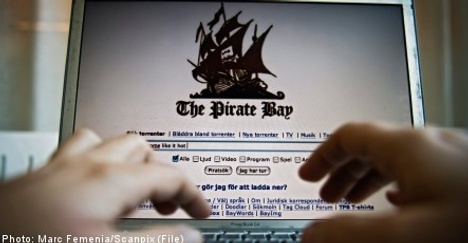According to The Pirate Bay’s blog, the technological development of de-centralized peer to peer networks has rendered the site’s tracker unnecessary, as file sharers can now come in contact with one another without the BitTorrent technology featured on The Pirate Bay.
“Now that the decentralized system for finding peers is so well developed, TPB has decided that there is no need to run a tracker anymore,” reads the Pirate Bay’s blog.
“It’s the end of an era.”
The decision to shut down the trackers may have an impact on the ruling by a Stockholm court against two of the men behind the Pirate Bay.
Gottfrid Svartholm Warg and Fredrik Neij are at risk of being fined 500,000 kronor ($73,400) each for their role in the operation of The Pirate Bay, according to a ruling issued by the Stockholm District Court in late October.
One of the prohibited functions cited in the ruling is the site’s tracker. From a legal perspective, the Pirate Bay’s decision to shut down the tracker means Svartholm Warg and Neij have abided by the court’s ruling.
But according to former Pirate Bay spokesperson Peter Sunde, the decision to shut down the tracker wasn’t made with the court’s ruling in mind.
“Not at all, this is for the good of the entire network. It’s to transition to a decentralized method. The tracker isn’t needed to use a torrent any longer and this is less vulnerable,” Sunde the TT news agency.
“But at the same time it’s significant that there isn’t anyone who is legally responsible anymore, besides those who actually file share. The scapegoat has been removed.”
Svartholm Warg also claims in his appeal of the ruling that the fines are redundant if the tracker is shut down.
Kristoffer Schollin, a lecturer in intellectual property law at the University of Gothenburg, reckons there may be some merit to Svartholm Warg’s arguments.
“If you interpret the district court’s ruling to mean that there are several components to the fines, all of which are necessary, then this will affect the order to pay the fines,” Schollin told TT.
But this view is not shared by Monique Wadsted, a lawyer representing the interests of major US film companies such as Disney and Sony Pictures.
“The prohibition relates to various different things and it’s not enough to just remove one of them. They have to stop all those things if they are to be in compliance with the district court’s prohibition ruling,” she told TT.


 Please whitelist us to continue reading.
Please whitelist us to continue reading.
Member comments